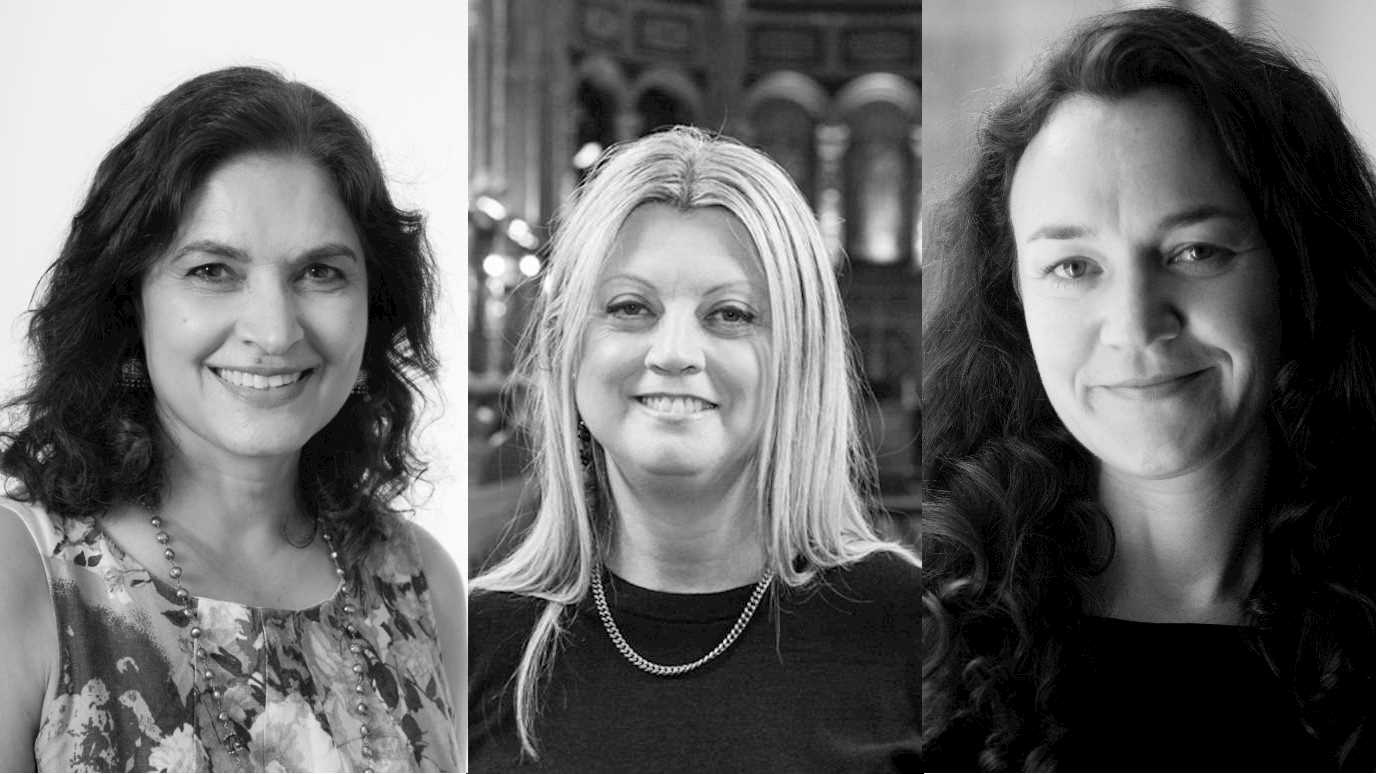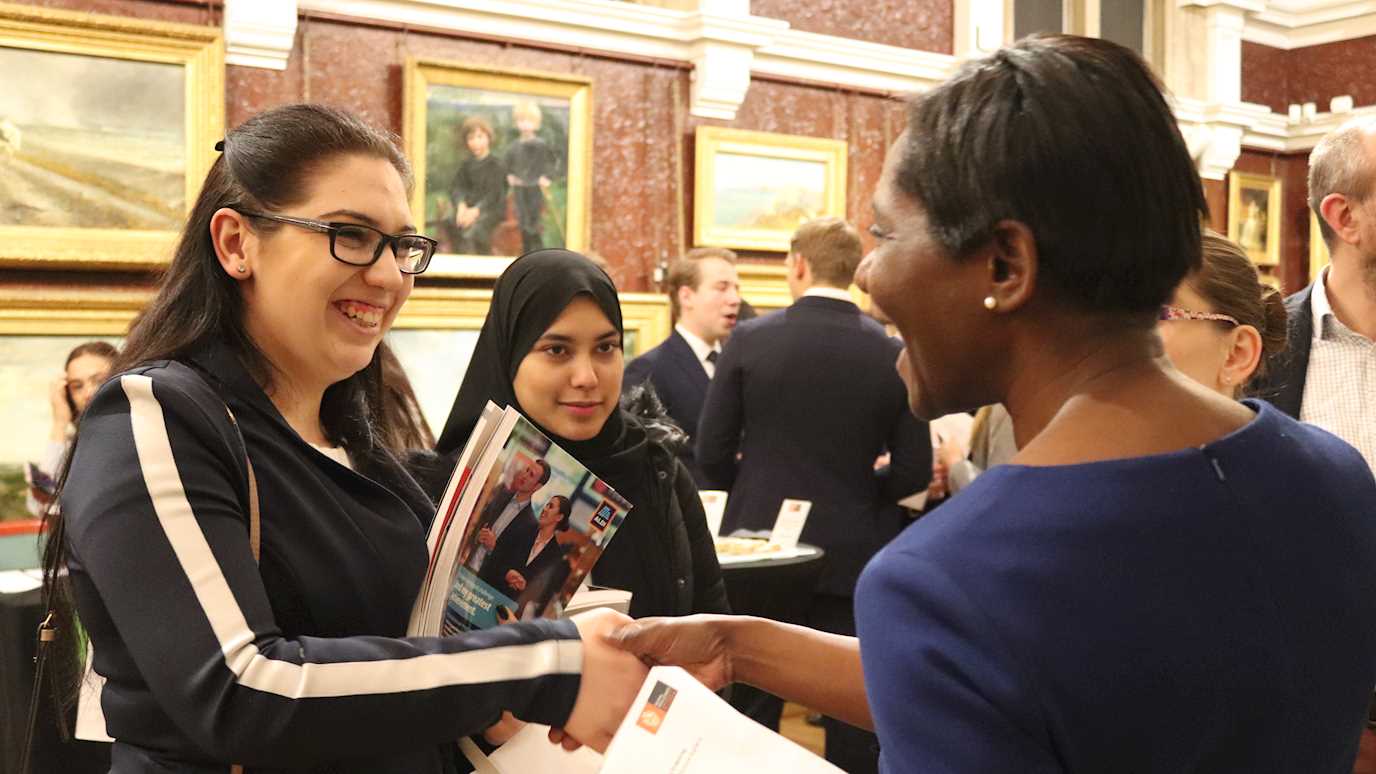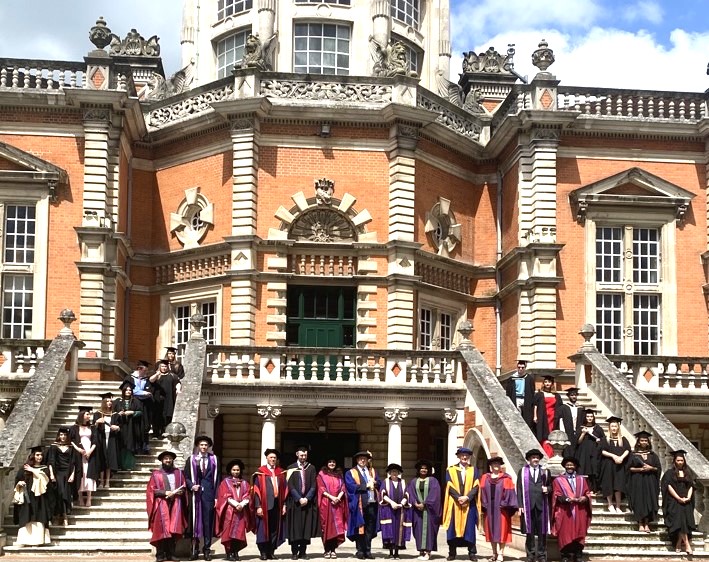In the Department of Law and Criminology we are proud that the majority of our professors are women. We spoke to Professors Ravinder Barn, Jill Marshall and Rosie Meek to find out more about their work, how they embarked on their careers, and what advice they have for our students.

Ravinder Barn is Professor of Social Policy and a Fellow of the Academy of Social Sciences. Over the years, her research has focused on marginality and discrimination, child welfare, gender and violence, and the sociology of technology. Ravinder says her work is “informed by structural approaches to understanding power differentials. I am particularly interested in policy formulations to help address social inequalities. One of the biggest impacts of my work has been the introduction of ethnic monitoring of all children in state care in England and Wales.”
Jill Marshall is Professor of Law and works at the intersections of women’s rights, sexual violence in conflict and displacement, rights to privacy, expression, power, human dignity, identity rights, care, and global justice. Jill explained “I’m particularly interested in researching the role of law in enabling us to be free and live our own lives in an unequal world.”
Rosie Meek is Professor of Criminological Psychology and was the founding Head of School. Rosie said she is “most passionate about identifying and responding to real world issues, advising the government, and taking my research into the classroom in order to share my work with my students as well as taking my students with me into prisons to meet and speak with those living and working in these extraordinary institutions.” Her work applies psychological theory to criminological issues. In particular, she focuses on prison education, promoting physical and mental health, and in particular now the role of sport and physical activity and other innovative ways of supporting desistance from crime.
What were your first steps when embarking on your research careers?
Ravinder became interested in research during her undergraduate degree when she completed a dissertation on ‘Race, ethnicity and social services provision’ in one local authority in the Midlands. She says, “the inadequacy of social service provision to minority families and children led to me to undertake a PhD to examine state power and the experiences of racialised families and children.” As principal investigator, Ravinder has secured numerous research grants, over the years, to study key social problems nationally and internationally. In an inter-disciplinary capacity, Ravinder has collaborated with colleagues in many countries including Finland, India, Italy, Norway, Palestine, South Africa, and the USA.
Jill also took an atypical route to academia. She was a full-time lawyer practising in the area of international dispute resolution at two City of London law firms during the 1990s. During practice she saw how “everyday sexism and unfairness on the basis of personal characteristics such as sex and race is rife in working life and how that compared to what I studied during my law degree.” She chose to complete a PhD in feminism and started teaching first as a part-time tutor, then as a fixed-term and later permanent Lecturer in Law at Queen Mary University of London.
Rosie did not engage with formal schooling and instead her path started with an A-Level evening class in Psychology. She says she “fell in love with Psychology and was in awe of the way it could be used to understand, explain and predict such a wide range of contemporary issues.” Rosie went on to complete a degree in social psychology, a masters in psychological methods and a PhD. During her studies Rosie volunteered with her local Youth Offending Team, a charity called New Bridge, and the Howard League for Penal Reform. She says her “voluntary work with currently serving prisoners and children caught up in the Youth Justice System inspired my commitment to prison issues which my teaching and research have been dedicated to ever since.”
What do you enjoy most about your current role at Royal Holloway?
Ravinder joined Royal Holloway as a young lecturer and has really appreciated the supportive environment in which she has been able to make a significant national and international contribution through her research. She is a strong believer in research-informed teaching and always seeks to “embed research to enhance the student’s learning experience”. She says that “the interaction with students is an important and an enjoyable aspect of my teaching experience and this ongoing dialogue is crucial in good student engagement, and outcomes. I am a great believer in a participatory and unified approach.”
Jill identified how her role gives her freedom to discuss ideas and new ways of thinking creatively with colleagues and students to see how law and other subjects can be used together to improve the world. She hopes universities will remain a place where staff and students can continue to investigate their curiosities and pursue projects which benefit society.
Rosie is proud that College supports our diverse student body to develop an academic voice and have a positive impact on the world. As the founding Head of School, she was “always determined that we would be distinct from, and where possible more progressive than, other more traditional departments and I see this in our staffing, our curriculum and our values.” Rosie particularly enjoys supporting PhD students, alongside undergraduate and masters students, in their academic journeys. She was previously awarded the College’s Doctoral Supervisor of the Year Award.
Do you have any advice for people, particularly women, hoping to work in the fields of law, criminology and sociology?
As a woman and a minoritized person in the UK, Ravinder says that minority women face additional challenges in academia. She has addressed such challenges with “conviction and self-belief”. Her strong advice to students to is demonstrate “steely determination, and critical thinking” and to be guided by their passion to help make a positive difference in the world.
Jill recommends students “study hard, talk to everyone, be open and curious. Don’t be afraid to hide your strengths and don’t be too hard on yourself and call it out when others undermine you. There are many great opportunities out there so take them when they come.”
Rosie has experienced the transformative effect of higher education first hand. She “encourages those interested in working in law, criminology and forensic psychology to ask questions and get as much related experience as possible (and to use this as an opportunity to ‘try out’ or be inspired by different professional contexts), to be determined but flexible enough to explore new opportunities or directions of interest and above all to stay curious about the world and energised to make a positive difference.”


























